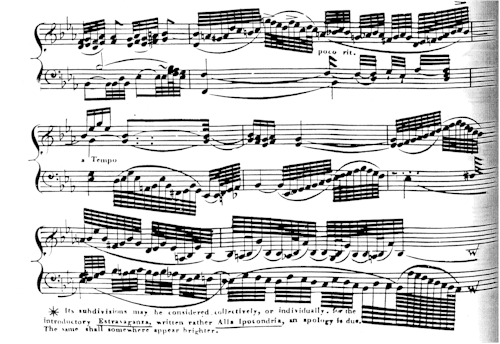Mathematical Emotion
Posted by David Corfield
Continuing the season of Collingwood on mathematics, here is an extract from The Principles of Art (1938):
A symbol is language and yet not language. A mathematical or logical or any other kind of symbol is invented to serve a purpose purely scientific; it is supposed to have no emotional expressiveness whatever. But when once a particular symbolism has been taken into use and mastered, it reacquires the emotional expressiveness of language proper. Every mathematician knows this. At the same time, the emotions which mathematicians find expressed in their symbols are not emotions in general, they are the peculiar emotions belonging to mathematical thinking. (p. 268)
[‘Symbol’ is used here to mean “something arrived at by agreement and accepted by the parties to the agreement as valid for a certain purpose” (p. 225).]
Anyone who doubts such ‘emotions belonging to mathematical thinking’ exist need only read an edition or two of This Week’s Finds. They are dripping with emotion, as the modern phrase has it.
Collingwood continues:
The same applies to technical terms. These are invented solely to serve the purpose of a particular scientific theory; but as they begin to pass current in the scientist’s speech or writing they express to him and to those who understand him the peculiar emotions which that theory yields. Often, when invented by a man of literary ability, thay are chosen from the first with an eye to expressing these emotions as directly and obviously as possible. Thus, a logician may use a term like ‘atomic propositions’ as part of his technical vocabulary. The word ‘atomic’ is a technical term, that is a word borrowed from elsewhere and turned into a symbol by undergoing precise definition in terms of the theory. Sentences in which it occurs can be subjected to homolingual translation. But, as we find it occurring in the logician’s discourse, it is full of emotional expressiveness. It conveys to the reader, and is meant to convey, a warning and a threat, a hope and a promise. ‘Do not try to analyse these; renounce the dream of analysing to infinity; that way delusion lies, and the ridicule of people like myself. Walk boldy, trusting in the solida simplicitas of these propositions; if you use them confidently as bricks out of which to build your logical constructions, they will never betray you.’ (pp. 268-269)
Now who has the best example of a mathematical term for which we can construct a similarly intricate account of its emotional expressiveness? Candidates include imaginary numbers, sober spaces, pseudofunctor, and the fundamental theorem of algebra. But we shouldn’t overlook less obvious terms such as inhabited set which express a decidedly constructivist emotion. It is interesting also to see how the emotion may drain from a term as it ages. Perhaps people these days tend to play it safe to avoid their patently loaded name later looking ridiculous.
I have the next two paragraphs by Collingwood here, ending with
The progressive intellectualization of language, its progressive conversion by the work of grammar and logic into a scientific symbolism, thus represents not a progressive drying-up of emotion, but its progressive articulation and specialization. We are not getting away from an emotional atmosphere into a dry, rational atmosphere; we are acquiring new emotions and new means of expressing them. (p. 269)
If so, we could understand that commonly met thought that learning mathematics is good for the soul in terms of its capacity to shape the emotions for the better.


Re: Mathematical Emotion
I’ll go off on a slight tangent and mention not emotion (which word probably means a different range of phenomena for me than for Collingwood, rather than necessarily disagreeing about the actual phenomena) but instead talk about terms with connotations. It’s always fascinated me how different types of number have English names with postive or negative connotations: there are natural numbers, rational numbers, irrational numbers, real numbers, imaginary numbers, transcendental numbers. Here it’s difficult for me to tell if the common meaning actually matches current day mathematical view, eg, are irrational numbers worse than rational numbers?(There are also ones where there English common usage is clearly a much closer match with the mathematical properties, eg, prime numbers – which are arguably “prime” numbers – and perfect numbers.) It would be very interesting to know if current (eg, within the last 20 years) mathematicians still have the confidence to use common words with positive or negative strong connotations for newly discovered entities. (Off the top of my head, the last ones I can think of are “catastrophe theory” and “chaos theory” which are both over 40 years old.)